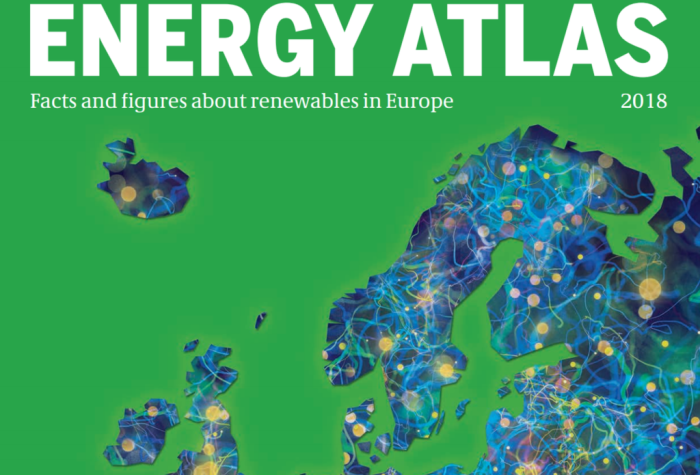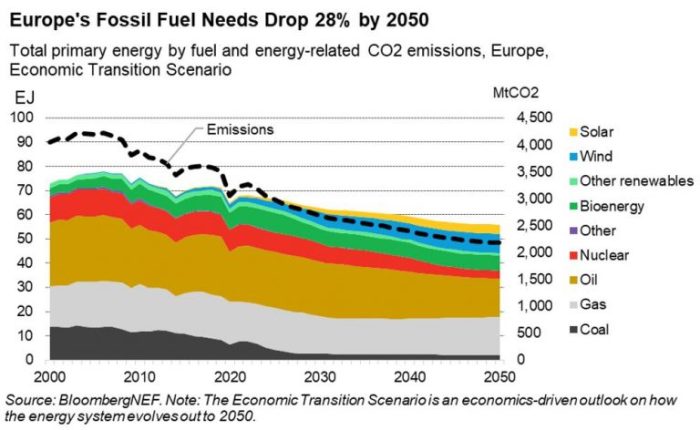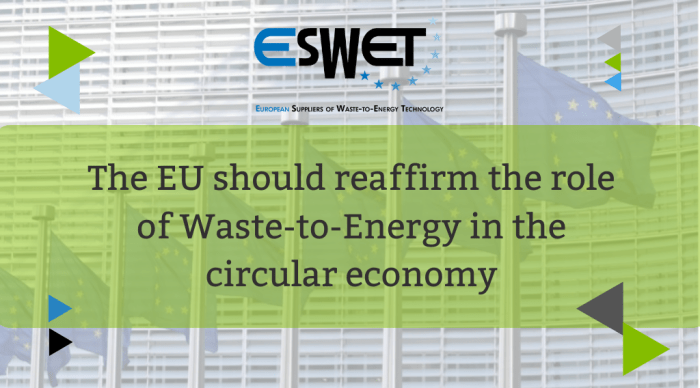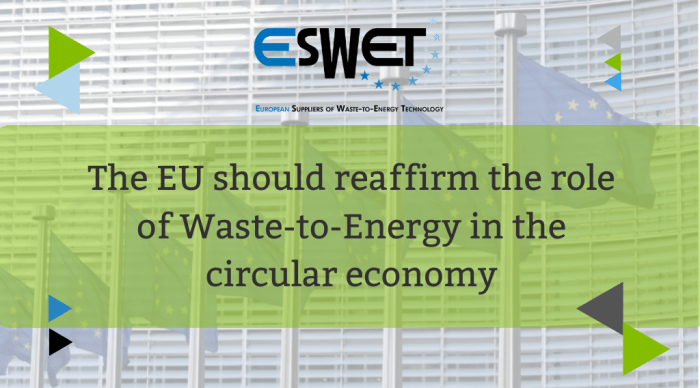Europe Home Energy Waste Startups Plan sets the stage for a fascinating journey into a world where innovation and sustainability intertwine. The European energy landscape is facing a critical juncture, grappling with rising energy costs and the need to reduce our reliance on fossil fuels.
This has created fertile ground for the emergence of a new breed of startups focused on tackling home energy waste, a significant contributor to Europe’s overall energy consumption. These startups are leveraging cutting-edge technologies and innovative approaches to empower homeowners to make smarter choices about their energy usage, ultimately leading to a more sustainable future.
The rise of these startups is not just a technological trend; it’s a reflection of a growing awareness of the need to address the environmental and economic impacts of energy waste. From smart thermostats that learn our energy habits to energy monitoring systems that provide real-time insights into our consumption patterns, these solutions offer a compelling blend of convenience, affordability, and environmental responsibility.
The European Energy Landscape

Europe faces a complex energy landscape characterized by high energy consumption and a growing need for sustainable solutions. Understanding the current state of home energy consumption, the challenges related to energy waste, and the impact of rising energy costs is crucial for developing effective strategies to address these issues.
Home Energy Consumption in Europe
The European Union (EU) is a significant energy consumer, with households accounting for a substantial portion of overall energy demand. In 2020, residential buildings accounted for approximately 26% of the EU’s total final energy consumption. This highlights the significant role that home energy consumption plays in the overall energy landscape of Europe.
Challenges Related to Energy Waste in European Households
Several factors contribute to energy waste in European households, posing significant challenges for achieving energy efficiency goals.
- Outdated Buildings:Many European homes are built with poor insulation, leading to heat loss and increased energy consumption for heating and cooling.
- Inefficient Appliances:Old appliances often consume more energy than newer, more efficient models, contributing to energy waste.
- Unconscious Consumption Habits:Many households are unaware of their energy consumption patterns and fail to adopt energy-saving practices, such as turning off lights or unplugging devices when not in use.
- Lack of Information and Awareness:Insufficient information and awareness about energy efficiency measures and available financial incentives can hinder households from adopting energy-saving solutions.
Impact of Rising Energy Costs on European Households
The recent surge in energy prices has significantly impacted European households, leading to increased energy bills and financial strain.
- Increased Energy Bills:The rising cost of energy has resulted in higher energy bills for households, putting a strain on household budgets and reducing disposable income.
- Energy Poverty:For vulnerable households with limited financial resources, the increase in energy costs can lead to energy poverty, where they struggle to afford essential energy services.
- Reduced Living Standards:The rising energy costs can force households to cut back on other essential expenses, such as food or healthcare, potentially leading to a decline in their living standards.
The Rise of Energy Waste Startups
The European Union, with its ambitious goal of achieving climate neutrality by 2050, is witnessing a surge in the number of startups dedicated to tackling home energy waste. These innovative companies are developing cutting-edge solutions to help households reduce their energy consumption and contribute to a more sustainable future.
Innovative Solutions for Home Energy Waste Reduction, Europe home energy waste startups plan
These startups are addressing the challenge of home energy waste with a diverse range of solutions. Their approaches encompass a wide spectrum, from smart home technologies to behavioral nudges, and they are effectively contributing to a more sustainable energy landscape.
- Smart Home Devices:These startups are developing intelligent devices that monitor energy consumption in real-time, providing homeowners with insights into their energy usage patterns. Examples include smart thermostats that learn user preferences and optimize heating schedules, smart plugs that track appliance energy consumption, and smart lighting systems that automatically adjust brightness based on occupancy and natural light.
Browse the implementation of nato innovation fund investment team deep defence tech in real-world situations to understand its applications.
- Energy Management Platforms:Startups are creating platforms that integrate with smart home devices, providing a centralized dashboard for managing energy consumption across multiple appliances. These platforms offer features like energy usage tracking, personalized recommendations for energy savings, and automated control of devices to optimize energy efficiency.
- Behavioral Nudging:Leveraging behavioral science principles, these startups are developing solutions that encourage energy-saving behavior through subtle prompts and incentives. This can include gamified energy saving apps that reward users for reducing their energy consumption, personalized feedback on energy usage, and social comparison features that motivate users to compete with their neighbors in saving energy.
Startup Solutions for Home Energy Waste

The European Union is committed to achieving climate neutrality by 2050. This goal requires a significant reduction in greenhouse gas emissions, including those from residential buildings. A significant portion of these emissions comes from energy waste in homes, which is a major concern for both the environment and household budgets.
Fortunately, innovative startups are emerging with cutting-edge solutions to address this challenge.
Smart Thermostats
Smart thermostats are a key component of home energy efficiency. They use advanced algorithms to optimize heating and cooling schedules, ensuring comfort while minimizing energy consumption. These devices often come with features like:* Remote control:Users can adjust their home temperature from anywhere using a smartphone app.
Geolocation
Smart thermostats can detect when residents are away from home and automatically adjust the temperature to save energy.
Learning algorithms
These thermostats learn user preferences and adjust settings accordingly.Here are some examples of successful smart thermostat startups:| Startup Name | Solution Type | Target Area | Key Features ||—|—|—|—|| Nest Labs| Smart Thermostat | Home Heating & Cooling | Remote control, geolocation, learning algorithms || Honeywell| Smart Thermostat | Home Heating & Cooling | Remote control, scheduling, energy usage monitoring || ecobee| Smart Thermostat | Home Heating & Cooling | Voice control, room sensors, smart home integration |
Energy Monitoring Systems
Energy monitoring systems provide homeowners with valuable insights into their energy consumption patterns. These systems track electricity usage in real-time and provide detailed breakdowns of energy usage by appliance. This data empowers homeowners to make informed decisions about their energy usage and identify areas for improvement.* Real-time monitoring:These systems offer a live view of energy consumption, allowing homeowners to see the impact of their actions.
Appliance-level tracking
They break down energy usage by specific appliances, allowing users to pinpoint energy-intensive devices.
Historical data
Energy monitoring systems provide historical data, enabling homeowners to analyze trends and identify potential savings opportunities.Here are some notable startups in the energy monitoring space:| Startup Name | Solution Type | Target Area | Key Features ||—|—|—|—|| Sense| Energy Monitoring System | Home Energy Usage | Appliance-level tracking, real-time monitoring, energy usage alerts || Smappee| Energy Monitoring System | Home Energy Usage | Real-time energy usage monitoring, solar panel integration, smart home integration || efergy| Energy Monitoring System | Home Energy Usage | Appliance-level tracking, historical data analysis, energy usage reports |
Insulation Technologies
Insulation plays a crucial role in reducing heat loss and improving energy efficiency in homes. Innovative startups are developing new insulation materials and technologies to enhance thermal performance and minimize energy waste.* Advanced insulation materials:These materials offer improved thermal resistance and durability, reducing heat loss through walls, roofs, and floors.
Spray foam insulation
This technique provides a continuous, airtight insulation barrier, preventing drafts and reducing heat loss.
Vacuum insulation panels (VIPs)
VIPs offer exceptional thermal performance in a thin and lightweight format, making them suitable for various applications.Here are some examples of startups in the insulation technology space:| Startup Name | Solution Type | Target Area | Key Features ||—|—|—|—|| Aerogel Technologies| Insulation Materials | Home Insulation | High thermal resistance, lightweight, durable || Foamular| Spray Foam Insulation | Home Insulation | Continuous, airtight insulation barrier, improved energy efficiency || Aspen Aerogel| Vacuum Insulation Panels | Home Insulation | Exceptional thermal performance, thin and lightweight, versatile |
Impact and Benefits of Startup Solutions

The rise of home energy waste startups in Europe holds immense potential for transforming the way we consume energy. These innovative solutions can significantly reduce energy waste, leading to substantial economic and environmental benefits for individuals, businesses, and the continent as a whole.
Economic Benefits of Reduced Energy Waste
The adoption of energy-saving technologies and practices can lead to significant economic benefits. By reducing energy consumption, households and businesses can lower their energy bills, leading to increased disposable income.
- For example, a study by the European Environment Agency estimated that households in Europe could save up to 20% on their energy bills by adopting energy-efficient practices and technologies.
- This financial relief can stimulate economic activity by increasing consumer spending power.
Furthermore, the development and deployment of energy-saving technologies create new markets and job opportunities in the green technology sector.
- The European Commission estimates that the green technology sector could create up to 2 million new jobs by 2030.
- This economic growth is driven by the increasing demand for energy-efficient products and services.
Environmental Benefits of Reduced Energy Waste
Reducing home energy waste has a significant positive impact on the environment.
- By lowering energy consumption, we reduce our reliance on fossil fuels, which are major contributors to greenhouse gas emissions.
- This shift towards renewable energy sources can help mitigate climate change and improve air quality.
The environmental benefits of energy efficiency extend beyond reducing greenhouse gas emissions.
- By reducing energy consumption, we also reduce the need for new power plants, which often have a significant environmental impact.
- This helps preserve natural resources and protect biodiversity.
Effectiveness of Different Startup Solutions
The effectiveness of different startup solutions in reducing energy consumption varies depending on the specific technology and the target audience.
- Smart home systems, for example, can automate energy-saving measures, such as turning off lights and appliances when not in use.
- These systems can significantly reduce energy consumption, particularly in homes with multiple occupants or those with a high number of connected devices.
- Energy-efficient appliances, such as refrigerators and washing machines, are another effective way to reduce energy waste.
- These appliances use less energy to perform the same tasks, leading to lower energy bills and reduced environmental impact.
- Energy-saving apps can provide real-time feedback on energy consumption and offer personalized recommendations for reducing energy waste.
- These apps can be particularly effective in educating users about their energy habits and motivating them to adopt energy-saving practices.
The effectiveness of these solutions can also be influenced by factors such as the availability of government incentives, consumer awareness, and the affordability of the technology.
- Government policies and financial incentives can encourage the adoption of energy-saving technologies by making them more affordable and accessible to consumers.
- Consumer awareness campaigns can help educate the public about the benefits of energy efficiency and motivate them to adopt energy-saving practices.
Challenges and Opportunities for Startups: Europe Home Energy Waste Startups Plan
Navigating the European energy landscape is a complex endeavor for startups seeking to disrupt the home energy waste market. While the potential for growth is significant, these ventures face a multitude of challenges that require strategic planning and adaptability.
Regulatory Landscape and Its Impact
The regulatory landscape plays a crucial role in shaping the trajectory of energy waste startups. Regulations concerning energy efficiency, data privacy, and consumer protection can create hurdles for startups, especially in the early stages of development. For instance, securing approval for innovative energy-saving technologies can be a time-consuming and expensive process, potentially delaying market entry.
- Navigating Complex Regulations:The European Union (EU) has implemented numerous directives and regulations aimed at promoting energy efficiency and reducing carbon emissions. Startups must navigate these complex regulations, which can vary significantly across member states, to ensure compliance and gain market access.
- Data Privacy Concerns:Energy waste startups often collect data about energy consumption patterns, raising concerns about data privacy. Adhering to EU regulations such as the General Data Protection Regulation (GDPR) is paramount to maintaining consumer trust and avoiding legal complications.
- Consumer Protection Laws:Startups must comply with consumer protection laws that regulate product safety, labeling, and marketing practices. Ensuring that their solutions meet these standards is crucial for building consumer confidence and avoiding legal disputes.
Opportunities for Growth and Expansion
Despite the challenges, the European energy waste startup landscape presents numerous opportunities for growth and expansion. The increasing awareness of energy efficiency and the rising demand for sustainable solutions create a fertile ground for innovation.
- Government Incentives:Many EU member states offer financial incentives, such as tax breaks and subsidies, to encourage the adoption of energy-saving technologies. Startups can leverage these incentives to accelerate their growth and market penetration.
- Growing Consumer Demand:Consumers are increasingly aware of the environmental and financial benefits of energy efficiency. This growing demand for sustainable solutions creates a significant market opportunity for energy waste startups.
- Collaboration and Partnerships:Startups can benefit from collaborating with established players in the energy sector, such as utilities, building developers, and technology companies. These partnerships can provide access to resources, expertise, and distribution channels.
Future Trends in Home Energy Waste Reduction
The field of home energy waste reduction is evolving rapidly, driven by increasing awareness of climate change and rising energy costs. Several emerging trends are shaping the future of this sector, paving the way for more efficient and sustainable homes.
The Role of Artificial Intelligence and Machine Learning
AI and ML are playing a crucial role in optimizing energy consumption. Smart home devices equipped with these technologies can learn individual usage patterns, predict energy demand, and automatically adjust settings to minimize waste. For instance, AI-powered thermostats can learn a homeowner’s preferences and adjust temperatures accordingly, ensuring comfort while minimizing energy consumption.
Future Direction of Home Energy Waste Reduction Technologies
The future of home energy waste reduction technologies is promising, with advancements in various areas.
Energy-Efficient Appliances and Building Materials
The development of energy-efficient appliances and building materials is crucial for reducing energy waste. Advancements in insulation, window technology, and appliance efficiency are expected to significantly reduce energy consumption in homes. For example, the adoption of smart appliances with energy-saving features, such as programmable washing machines and energy-efficient refrigerators, is expected to become more widespread.
Integration of Renewable Energy Sources
The integration of renewable energy sources, such as solar panels and wind turbines, is becoming increasingly common in homes. These technologies allow homeowners to generate their own clean energy, reducing their reliance on fossil fuels and minimizing energy waste. The falling costs of solar panels and other renewable energy technologies are making them more accessible to a wider range of consumers.
Smart Grid Technologies
Smart grid technologies are enabling better energy management by providing real-time data on energy consumption and production. This information can be used to optimize energy usage, reduce peak demand, and promote the integration of renewable energy sources. For instance, smart grids can enable homeowners to shift their energy consumption to off-peak hours, when energy is cheaper and cleaner.
Energy Storage Solutions
Energy storage solutions, such as batteries, are becoming more prevalent in homes, allowing homeowners to store excess energy generated from renewable sources. This allows them to use the stored energy during peak demand periods, reducing their reliance on the grid and minimizing energy waste.
Energy Efficiency Education and Awareness
Raising awareness about energy efficiency is crucial for driving adoption of energy-saving practices. This can be achieved through educational campaigns, government incentives, and community outreach programs. By empowering consumers with knowledge and tools to reduce their energy consumption, we can create a more sustainable future.





